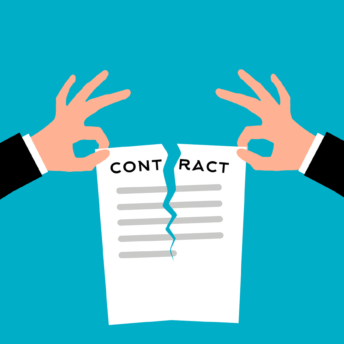An overage, also known as a claw-back or uplift, is an agreement in which the buyer agrees to pay more money on top of the original purchase price if and when specified events occur. For instance, suppose the buyer enhances the value of the land by gaining planning permission. In this article, what is overage agreement, we take a look at the process involved and the options available to you.
Free Initial Telephone Discussion
For a free initial discussion on how we can help you deal with the legal implications of creating an overage agreement, get in touch with us today. We are experienced in dealing with all forms of commercial property negotiations and we will review your situation and discuss the options open to you in a clear and approachable manner. Early expert legal assistance can help ensure you avoid the stress of dealing with these issues on your own. Simply call us on 0345 901 0445 or click here to make a free enquiry and a member of the team will get back to you.
Are there different types of agreements?
A seller can safeguard an overage payment in a variety of ways. The duty to pay is a commercial agreement between the two parties. However, if you rely solely on the contractual duty and provide no security, you risk being unable to recover payment in the event of a breach. This is especially true if the developer in question is a special purpose vehicle (SPV) with few assets to pursue.
Protection through a legal charge on the title being sold is one type of protection, but developers frequently oppose it. Any development funder is likely to require a first legal charge on the property being developed, therefore using a legal charge to protect an overage agreement may make it difficult to develop a site.
Local governments should also exercise caution before attempting to use restricted covenants or ransom strips to protect an overage payment. The usage of a restrictive covenant necessitates the preservation of some land that benefits from the restriction covenant. Otherwise, the restrictive covenant will be null and void. A ransom strip would necessitate careful monitoring to ensure that no prescriptive rights developed over time, and the retention of a ransom strip without any background agreement dealing with future payments will not protect payment or ensure that the best consideration is obtained on the sale of the original site.
The most typical strategy to protect an overage is to include a positive covenant in a contract that is protected by a limitation on title. This forbids a purchaser from disposing of the property without the authorization of the beneficiary under the overage agreement. A positive contract requirement would also require that the restriction be lifted or consent be supplied upon payment.
What events trigger an overage clause?
As previously stated, an overage clause mandates the buyer to make an additional payment to the seller, representing a portion of the higher value of the property/land when an agreed-upon trigger event occurs. This event could include:
- The giving of approval for development or a change of use.
- Disposal of the property/land with the benefit of planning permission.
- Early implementation of planning permission and disposal of the property/land with the benefit of that planning permission.
- Disposal of the property/land at a higher price within a fixed time period.
- Disposal of the completed development.
Overage provisions allow the seller to sell at the current market value of the property/land without having to give up a portion of the development potential when it is realised.
Situations in which an overage clause may not be advantageous
Overage provisions, while useful in some sales contracts, may not be appropriate in all cases, such as:
- If the likelihood of the land/property being developed is remote, the cost of arranging elaborate payment provisions may outweigh the likelihood of the overage payment being made.
- Overage clauses may also have an impact on the initial purchase price that the buyer is willing to pay for the property/land.
- When a buyer buys property/land with the purpose of redeveloping it immediately, it is often preferred for the seller to provide the buyer an option or engage into a conditional contract for the sale. Completion occurs only once planning permission is granted, and the purchase price can then be computed based on market value using the actual planning approval obtained.
What will the payment be?
When selecting how much to pay and how to calculate the amount, it is critical to keep things as simple as possible; this ensures that there is minimal room for error and that the result fully reflects the goals of both parties.
Typically, the sum payable will be a percentage of the increase in value resulting from the planning permission, or the difference between the price at which the buyer purchased the property and the price at which it was sold, where payment is triggered by the re-sale of the property.
Most of the time, an open market valuation will be used to calculate the cost. To guarantee proper comparisons, land will be valued with and without planning permission on the same day (not affected by inflation or economic events etc). In certain cases, a fixed charge based on measurement, such as for each unit or square metre developed, will be payable; in these cases, it is critical to understand how these measures will be established.
Is the payment sufficient to discharge the obligation?
It is critical that the wording in this section of the agreement be unambiguous; otherwise, difficulties and loopholes can arise. To avoid this happening, it is essential that you seek experienced legal advice.
Overages will, in most situations, be a one-time payment based on the property’s initial, unique development. However, this provides the door for the developer to perform a minor value enhancement in order to “clear off” the overage before proceeding to make much larger and more significant adjustments. Although this might let the buyer avoid paying exorbitant fees, it would be disastrous for the seller, especially if the money was being relied upon. To that end, it is critical to include a good faith clause in the contract to protect the seller from being exploited or to state that there is a minimum provision before overage takes effect, possibly about 10%.
How we can help
We have a proven track-record of drafting overage agreements. We will guide you through the process and ensure all checks are carried out swiftly and efficiently and we firmly believe that with the right solicitors by your side, the entire process will seem more manageable and far less daunting.
How to Contact Our Commercial Property Solicitors
It is important for you to be well informed about the issues and possible implications of drafting an overage agreement. However, expert legal support is crucial in terms of ensuring a positive outcome to your case.
To speak to our Commercial property solicitors today, simply call us on 0345 901 0445, or click here to make a free enquiry. We are well known across the country and can assist wherever you are based. We also have offices based in Cheshire and London.





